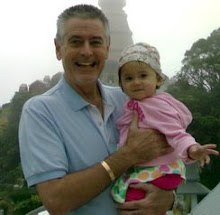 Did you know that Red Bull the world's leading energy drink, which sells more than ONE BILLION CANS a year in nearly 100 countries actually originates from Krating Daeng a Thai beverage energy drink?.
Did you know that Red Bull the world's leading energy drink, which sells more than ONE BILLION CANS a year in nearly 100 countries actually originates from Krating Daeng a Thai beverage energy drink?.Dietrich Mateschitz an Austrian on a visit to
Thailand in 1982 took home with him several bottles of Krating Daeng primarily because he claimed it took away his jet lag.

Krating Daeng, which is Thai for "Red Bull," was a drink popular among cab drivers and other blue collar workers. It had been produced since the early 1970s by the T.C. Pharmaceutical Co., founded in Thailand in 1962 by Chaleo Yoovidhya, a Blendax licensee. (T.C. Pharmaceutical eventually formed the subsidiary Red Bull Beverage Co. Ltd.)
Mateschitz founded Red Bull GmbH in Austria in 1984 as a 49 percent partner with Chaleo Yoovidhya and his son. The company began marketing its namesake drink in Austria in 1987; a million cans were sold in the year.
The original formula was altered for Western palates. Some ingredients were dropped and carbonation was added. Components of the legendary elixir included "B" vitamins, glucuronolactone, sodium, and caffeine. One ingredient, the amino acid taurine, was derived synthetically, not from bull testicles, as rumour had it!!.
Red Bull's selling proposition was that it increased stamina and mental concentration, making it a natural for one of the original target users, long-distance drivers. The taste of the thick yellow beverage, said to be akin to liquid gummi bears, lent added distinction to the brand.
Red Bull's distribution expanded into neighboring countries Hungary and Slovenia in 1992. Red Bull was introduced in Germany in March 1994. By June, it was claiming a quarter of the sports drink market there, reported the Associated Press, putting it ahead of Gatorade. It was priced about three times as much as a can of Coca-Cola. Red Bull was introduced in the United Kingdom in 1994 and marketed there as Red Bull Stimulation after 1996.
Red Bull entered the United States in 1997, focusing at first on four western states: California, Oregon, Texas, and Colorado. It was marketed to Americans as a non-corporate alternative to Coke and Pepsi, and both packaging and pricing helped set it apart. The drink was sold in unique, narrow 8.3-ounce cans for $2 a pop.
Red Bull associated itself with the nascent extreme sports movement. The company sponsored snowboarding and freeskiing contests and Flugtag, a homemade flying machine challenge (Mateschitz was an enthusiastic collector of vintage aircraft).
While Red Bull had appealed to athletes and, in the United States, tired white collar workers, the real story of Red Bull's growth lay in the promise of further endurance at clubbing, giving it a special appeal for young people exhausted from working hard all week. The Los Angeles Times reported that the beverage appeared to glow green under the fluorescent light of nightclubs. The drink became a very popular mixer, especially with vodka. Red Bull deepened its involvement with the club scene by sponsoring a month-long school for deejays in New York City called the Red Bull Music Academy.
Worldwide sales were logged at 300 million cans in 1998 by Beverage World. By the end of 1999, Red Bull was sold in more than 50 countries, and sales estimates varied between 600 million and one billion cans worldwide. Red Bull led the energy drink category in the United States and the United Kingdom, where it displaced the venerable Lucozade brand owned by pharmaceutical company SmithKline Beecham (later GlaxoSmithKline).
The company promoted the lift the beverage offered with the slogan "Red Bull gives you wings." Traditional advertising was limited, as the company focused heavily on getting product samples into the right hands. The company sometimes put up edgy, graffiti-style billboards. In the late 1990s, Red Bull produced animated TV ads for mature markets.
By this time, Red Bull GmbH was the most highly valued company in Austria, worth about $11 billion according to one estimate. This made Mateschitz, with his 49 percent holding, the country's richest individual.
Mammoth beverage marketers such as Coca-Cola Co. and Anheuser-Busch were pouring out new drinks designed to capture a share of the success of "cult" energy drinks, a $300 million market. PepsiCo acquired South Beach Beverages, maker of the SoBe brand, in 2000, and Quaker Oats, owner of Gatorade, the next year. Liquor distributors were also eyeing Red Bull's share of the mixer market, introducing pre-mixed premium drinks such as Smirnoff Ice. Former Red Bull employees launched a competitor, Roaring Lion, in 2001, its marketing and distribution tailored for the nightclub market.
Red Bull sued a number of bars for surreptitiously substituting knock-offs when customers ordered mixed drinks specifying Red Bull. Red Bull's Australian distributor rolled out its own competing beverage called LiveWire. A court later found Sydneywide Distributors copied Red Bull's packaging too.
Source: Red Bull GmbH






















































